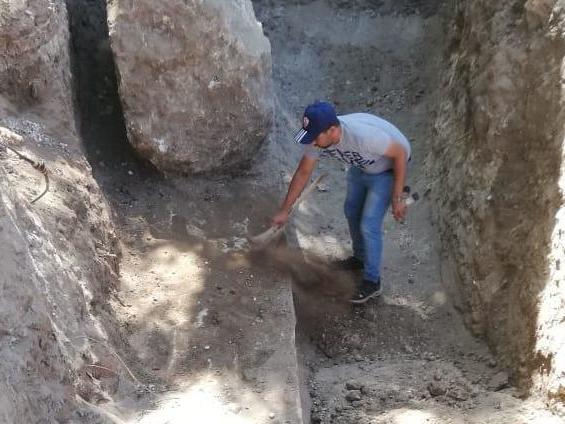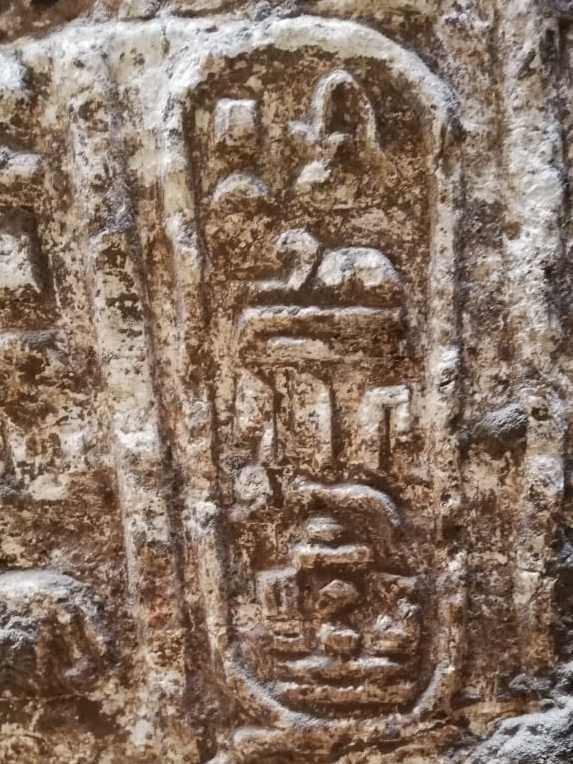Ancient Egyptian temple unearthed after 2,200 years
Tomb discovered by construction workers digging for sewage drain

Your support helps us to tell the story
From reproductive rights to climate change to Big Tech, The Independent is on the ground when the story is developing. Whether it's investigating the financials of Elon Musk's pro-Trump PAC or producing our latest documentary, 'The A Word', which shines a light on the American women fighting for reproductive rights, we know how important it is to parse out the facts from the messaging.
At such a critical moment in US history, we need reporters on the ground. Your donation allows us to keep sending journalists to speak to both sides of the story.
The Independent is trusted by Americans across the entire political spectrum. And unlike many other quality news outlets, we choose not to lock Americans out of our reporting and analysis with paywalls. We believe quality journalism should be available to everyone, paid for by those who can afford it.
Your support makes all the difference.A 2,200-year-old Egyptian temple from the era of Pharaoh Ptolemy IV has been uncovered on the bank of the Nile.
The tomb was discovered by construction workers digging for a sewage drain in the village of Kom Shaku in the Tama township, according to a Facebook post by Egypt's Ministry of Antiquities.
Sanitation work was suspended while archaeologists explored the remains of the temple.
They found stone inscriptions reading "Ptolemy IV," who ruled Egypt from 221 to 204BC.
Other carvings featured the Egyptian god Hapi, the god of the annual flooding of the Nile, carrying offerings and surrounded by birds and other animals.

Archaeologists have so far discovered a north-south wall, an east-west wall and the southwestern corner of the structure.
Ptolemy IV is believed to have presided over the beginning of the decline of the Ptolemaic dynasty.
Egypt has pushed to boost tourism following the country's civil war in 2011.
It recently opened King Sneferu’s 4,600-year-old “bent” pyramid in the Dahshur royal necropolis south of Cairo to the public.
The 101m-high structure was one of two pyramids built for Sneferu, who founded the Fourth Dynasty.
Join our commenting forum
Join thought-provoking conversations, follow other Independent readers and see their replies
Comments